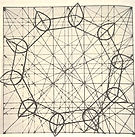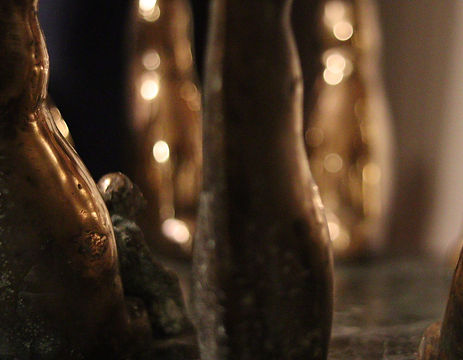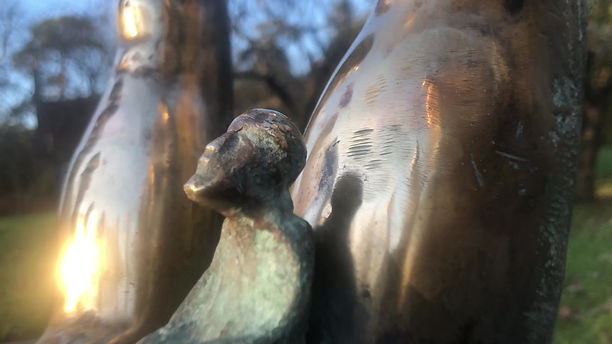
The Invitation

Hello
Read more about me below if you must, but please read about the book first.
This is a deeply personal book. It emerges from the author’s own search for meaning in literature, art, experience, and honest, vulnerable conversation with others in the complex swirl of identities and ideologies that is Central and Eastern Europe.
It's as if he sits with two friends, one a Christian and one not, and invites both of them to consider more deeply their experience of the world. The book defies skim-reading as Marsh’s thoughts can be dense, but the rewards are great for those willing to chew over what he says. Moving between philosophical discussion and cultural analysis, he maintains a pastoral tone throughout and there is an earnest and sincere interest for the reader. This is not an academic treatise, but a conversation with a friend. Yet, it engages theory, philosophy, art and theology without being abstract.
His extended illustration of the 'Cafe of Now and Not Yet' invites the reader to know through participation, and so this is a book that you experience as much as you examine. In that way, you are left deeply convinced and wanting that 'better country' and have probably already made plans to move there."
There are moments when his phrasing invites a double-take, and you're forced to think more slowly and check your soundbite theology. In a time when we don't listen well to one another, the book demands that welcome discipline. In this way, Marsh would keep good company with the Teacher of Ecclesiastes, and there is a sense that the book offers an ancient wisdom which sounds and feels unfamiliar to the modern Christian. He highlights how our fundamental concepts of life - such as personhood, community, reality and the imagination - are underdeveloped and therefore unbiblical. You come away committing yourself not to be content with trite answers to life, assured that God's word does satisfy our deepest concerns.

What do you hunger after?

The book is distinctive because:
-
Readers have recognised the questions in the text are authentic to their experience.
-
It makes no strong division between Christians and non-Christians.
-
It works towards a positive vision of goodness and human flourishing.
-
it reframes and clarifies moral questions in an honest and direct style and everyday non-religious language.
-
it gives a fresh perspective and new categories.
-
it gradually introduces the concept of God, who becomes more personal as the book progresses.
-
It uses practical examples from pre- and post-communist Central European life.
-
It uses narrative and stories to simplify complex ideas.
-
it invites the use of the imagination.
The book aims to awaken the moral imagination and stimulate a hunger for the goodness of other-centered love as the foundation for trust and deeper relationships.
Our world is polarized. People demand a new morality, but will this new morality be better than those tried before? Moral relativism and naturalism are unreliable foundations for trust that is now fragmenting, fragile, and declining. Consumerism has failed to satisfy our hunger for meaning, and in an age of hyper-individualism, there is an identity crisis in which people are lonely, and anxiety is high. The book addresses the intuitive hunger of this paradigm by awakening a vision of trust and a trusting community.
The book is framed by an encounter with a sculpture about the Decalogue. It shows how the freedom to trust and the call to trustworthiness are the most fulfilling of freedoms. We are invited to imagine a life where everyone willingly obeys it. In discovering the good, we realize our own moral failing and need for help. The Decalogue provides a matrix of moral boundaries enabling trusting relationships that protect against distortions of reality and abuses of power. Living within the Decalogue leads to social, economic, and psychological abundance; outside, there is chaos and disorder.


About Marsh
Marsh Moyle, and his wife Tuula lived for 17 years in Vienna when the Iron Curtain divided Europe. They organised book translation and distribution and researched the beliefs and practices, and problems of living under communism. They lived in Slovakia for 16 years in the post-communist period, establishing publishing houses in seven countries. They also ran a learning community and held seminars with student groups in Central Europe, Russia, and Ukraine. They developed learning modules that awakened the imagination, encouraged critical thinking, and led to a deeper practical understanding of biblical ideas. These memorable and paradigm-shifting events lead to a more coherent understanding of why Christianity is a better story and how faith integrates everyday life.
Contact
Get in touch so we can can learn about your experience with the Book and the Cafe Now and Not Yet